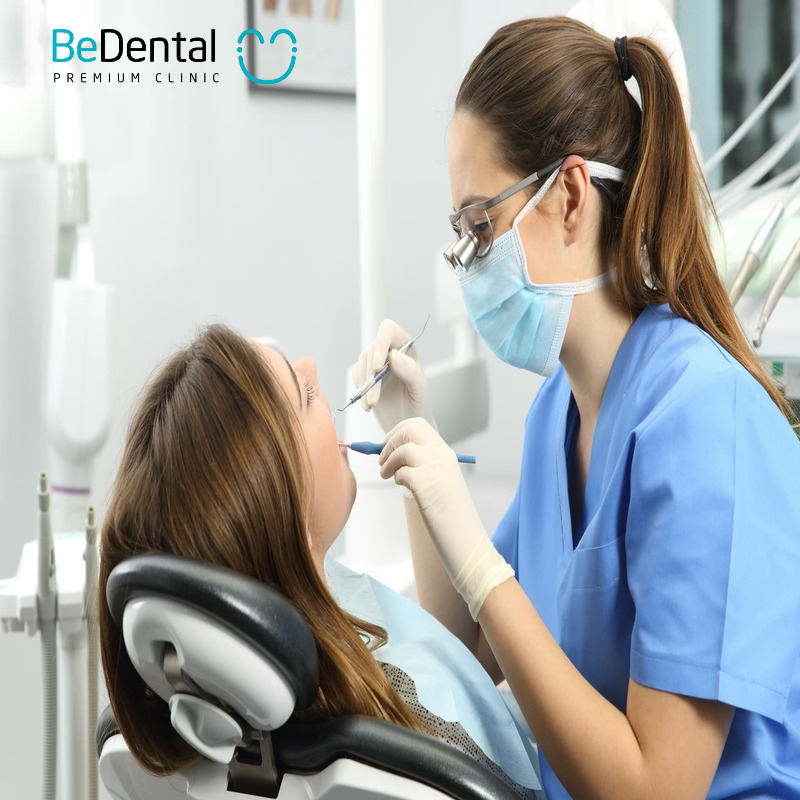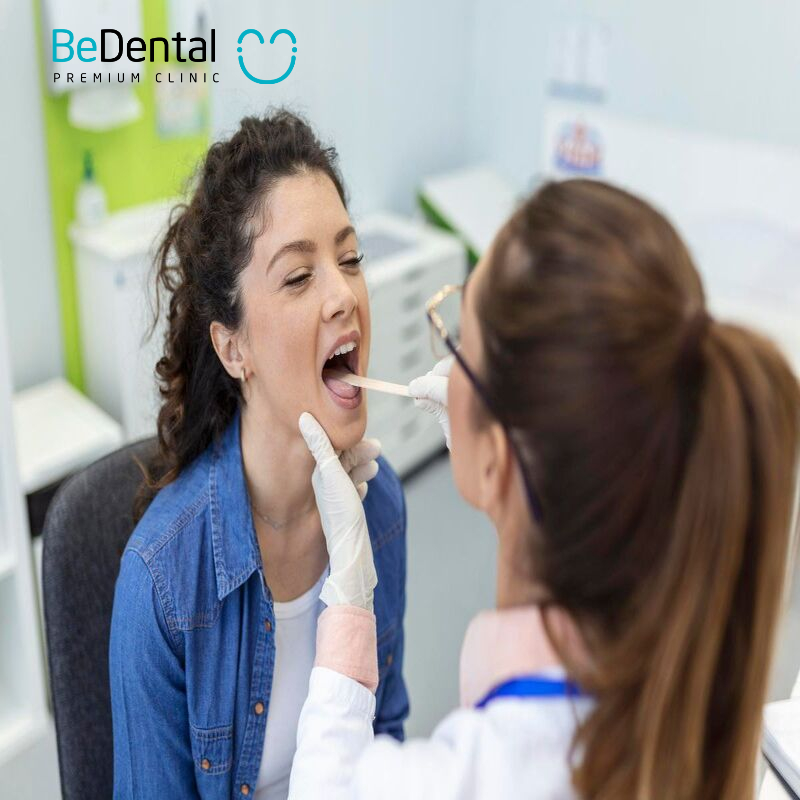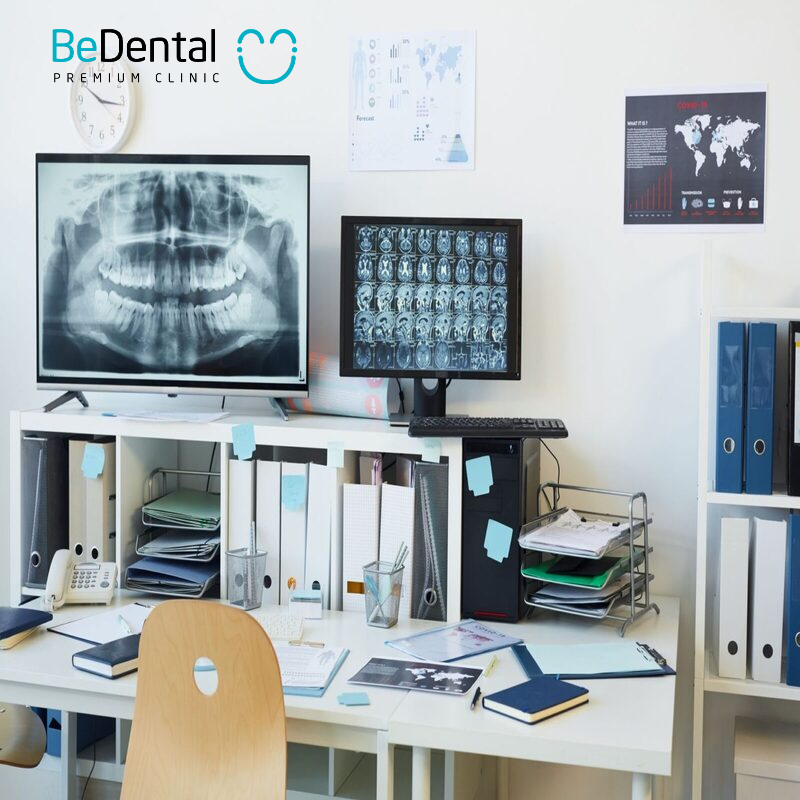Cleaning and maintenance of dental equipment is not only about ensuring the performance of the devices but are also crucial for the safety and health of patients. According to statistics from the World Health Organization (WHO), approximately 10% of hospital infections arise from cross-contamination due to improper cleaning of medical equipment. In dentistry, this becomes even more critical due to the direct contact with blood, saliva, and soft tissues in the oral cavity.
Additionally, another study indicates that regular maintenance can extend the lifespan of equipment by up to 30%, while also reducing unwanted repair and replacement costs by 20%. Proper cleaning and maintenance not only help prevent medical risks but also save costs for the clinic, ensuring stable operations and enhancing its reputation in the eyes of patients.
The Role of Dental Equipment
Dental equipment serves two essential roles: supporting effective diagnosis and treatment, and ensuring quality and safety for patients.
Supporting Effective Diagnosis and Treatment
Dental equipment (list of dental equipment) plays a vital role in assisting dentists to accurately diagnose oral health issues. For instance, devices such as dental X-ray machines and intraoral cameras help identify problems like cavities, pulpitis, or soft tissue damage that may not be visible to the naked eye.
During treatment, equipment such as dental chairs, drills, scalers, and other hand tools enable dentists to perform procedures accurately and quickly, minimizing treatment time and ensuring optimal outcomes.

Ensuring Quality and Safety for Patients
Modern dental equipment is designed to meet stringent medical standards (ISO for medical tools), helping to minimize risks during treatment. For example, sterilization machines for tools help prevent infections and ensure a safe working environment.
- ISO 1797:2017 – Dental rotary instruments – Shanks: This standard specifies the dimensions and requirements for shanks of dental rotary instruments, such as drills and burs, ensuring compatibility with dental handpieces.
- ISO 7405:2018 – Dentistry – Evaluation of biocompatibility of medical devices used in dentistry: It provides guidelines for evaluating the biocompatibility of dental materials that are used in devices, ensuring that they do not have harmful effects on patients.
- ISO 9873:2019 – Dentistry – Intra-oral mirrors: This standard defines requirements for intra-oral dental mirrors, ensuring their optical quality, durability, and safety for clinical use.
- ISO 14457:2017 – Dentistry – Handpieces and motors: It specifies requirements and test methods for handpieces and motors used in dental practice, covering factors like durability, safety, and performance.
- ISO 21671:2006 – Dentistry – Powered scaler systems: This standard covers the requirements for ultrasonic and sonic scaler systems used in dental scaling to remove plaque and calculus.
- ISO 22112:2017 – Dentistry – Artificial teeth for dental prostheses: It specifies requirements and tests for artificial teeth used in dental prostheses, covering aspects like material properties and wear resistance.
- ISO 6877:2006 – Endodontic instruments: This standard defines the specifications for endodontic instruments, such as files and reamers, ensuring quality and safety for use in root canal treatments.
Equipment also contributes to patients feeling more secure and comfortable when visiting the clinic, thanks to the precision and effectiveness of the treatment process, which enhances their positive experience and maximizes safety.
The Importance of Cleaning and Maintenance of Dental Equipment
Cleaning and maintenance of dental equipment helps achieve various objectives: preventing infections, improving patient experience, enhancing the professional image and reputation of the clinic, and more.
Preventing Infectious Diseases- The Importance of Cleaning and Maintenance of Dental Equipment
Regular cleaning and disinfection of dental equipment are mandatory to prevent cross-contamination between patients. Tools that come into direct contact with the mouth, blood, and saliva can harbor bacteria and viruses. Proper cleaning helps protect both patients and healthcare staff from infection risks.
Improving Patient Experience- The Importance of Cleaning and Maintenance of Dental Equipment
A clean environment with good hygiene instills a sense of safety and trust in patients. When patients see that equipment is properly cared for and cleaned, they feel more confident in the quality of care and are less anxious about health risks.

Professional Image and Reputation of the Clinic
Cleaning and maintaining equipment is not only a medical requirement but also a factor that helps build a professional image for the clinic. A clean clinic with well-maintained modern equipment reflects a commitment to quality and professionalism, thus enhancing its reputation among patients.
Legal Compliance and Public Health Protection
Regulations regarding hygiene and maintenance of medical equipment are mandated by law. Compliance with these regulations not only helps the clinic avoid legal violations but also contributes to public health protection by preventing the spread of infectious diseases.
Increasing Durability and Lifespan of Equipment
Regular maintenance helps extend the lifespan of dental equipment. Well-maintained devices not only function better but also experience fewer breakdowns, thus reducing costs associated with repairs or replacements.
Reducing Repair and Replacement Costs- The Importance of Cleaning and Maintenance of Dental Equipment
Regular maintenance allows for the detection of minor issues before they escalate into serious problems, thereby minimizing repair costs. Extending the lifespan of equipment also saves on replacement costs, enabling the clinic to operate smoothly without needing to frequently invest in new equipment.
Ensuring Operational Efficiency- The Importance of Cleaning and Maintenance of Dental Equipment
Properly maintained equipment operates at peak performance, facilitating smoother and more accurate treatment processes. This ensures the quality of service provided by the clinic, builds patient trust, and ensures continuity in treatment sessions.
Effective Cleaning and Maintenance Process
The cleaning and maintenance process involves three steps: planning maintenance, training staff, and consulting professional cleaning services.
Planning Regular Maintenance
Developing a clear maintenance schedule based on manufacturer guidelines and industry standards is essential. This ensures that all dental equipment is serviced on time, avoiding unexpected breakdowns.
The regular maintenance process should include a comprehensive check of all equipment parts, from mechanical systems to control software, to promptly identify and address minor issues.
Training Staff on Equipment Hygiene and Maintenance
Ensuring that dental staff are well-equipped with knowledge and skills regarding equipment cleaning procedures, including cleaning, disinfection, and sterilization, is crucial. This helps maintain a clean, safe, and sterile working environment.
Staff should also be trained on basic maintenance steps to handle minor issues and conduct regular checks before using equipment.

Using Professional Maintenance Services
To ensure that equipment is maintained according to technical standards, clinics should collaborate with professional maintenance services. These experts possess in-depth knowledge and the appropriate equipment to safely and accurately inspect, repair, or upgrade medical systems.
Choosing reputable units in the field of medical equipment maintenance helps ensure effective servicing, prolongs lifespan, and maintains optimal operational efficiency for dental equipment.
Conclusion
Cleaning and maintaining dental equipment are key factors in ensuring treatment quality, patient safety, and enhancing the clinic’s reputation. Not only do they help prevent infections, but regular maintenance also extends the lifespan of equipment and reduces repair costs. Strict adherence to cleaning and maintenance procedures is a commitment to protecting public health while providing peace of mind and trust to patients. Therefore, investing in cleaning and maintenance is not only a responsibility but also a sustainable development strategy for healthcare facilities.
For those seeking further consultation regarding dental examination services, please visit BeDental’s locations in Hanoi or Ho Chi Minh City. BeDental is a reputable dental clinic in Vietnam. You can also reach us at our hotline: (+84) 934.61.9090 / (+84) 899.555.636 or through our Facebook page, BeDental, for prompt and accurate assistance.




